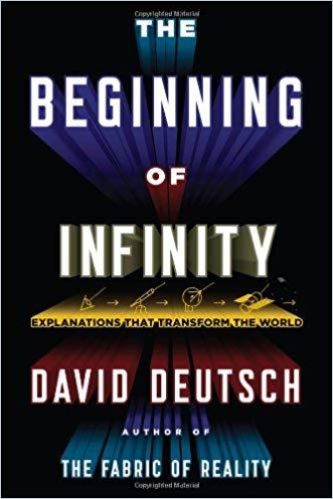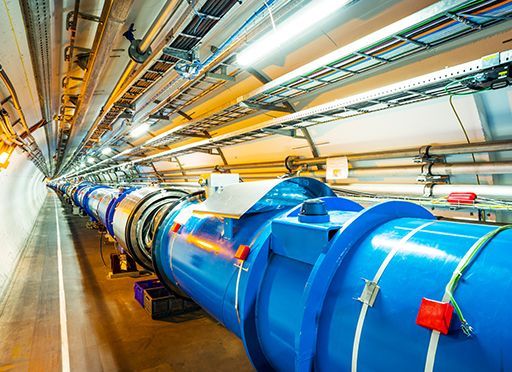Oxford physicist David Deutsch offers a dizzying, thought-provoking, wholly readable overview of the development – and of humankind’s limitless pursuit – of knowledge.

Understanding Knowledge
Despite the stars’ and galaxies’ distance from the Earth, human beings know a lot about them, and even more about Earth and themselves. People gained this knowledge through scientific explanations, which are uniquely human. Science, and the drive to explain things, fuels human progress at every level – and, thus Oxford physicist David Deutsch insists, human progress has no limits.
Explanations
Real progress began in the 17th century during the Enlightenment, which embraced science, technology, ethics, politics and every aspect of human existence, thus enabling the search for explanations of reality.
I do not know which is more awesome: the phenomena themselves or the fact that we know so much about them.David Deutsch
That human beings seek these explanations demonstrates that they hold a crucial place in the tumultuous and forbidding universe, which scientific theories explain with scientific principles.
Explanatory Knowledge
Human beings thrived on Earth due to their adaptation through applications of human knowledge. The human capacity to create and use explanatory knowledge means people can change their environment. If they don’t transgress the laws of nature, humans, Deutsch proclaims, can use knowledge to do just about anything.
Evolution and Human Knowledge
The history of the attempt to unravel the origins of living beings is rife with errors and misdirections, Deutsch explains. Differences in explanatory theories result from ideas tacked on as the theories pass on from one person to another. Living things and theories both reproduce. Through evolution, living beings adapt to a specific space and time. Theories can lead to knowledge and explanations that have vast scope and, sometimes, universality.
Knowledge and Universality
Human knowledge and innovation tend to start modestly and move inch by inch. The first writing systems, for example – created for administrative purposes – began with pictures. Small improvements within a field of knowledge or a technology can suddenly have much broader, or even universal, application than first imagined.
Genes, for example, are “replicators” – essentially readers of the genetic code. The first genes did this for single-celled creatures, and all subsequent living organisms on Earth sprang from DNA. DNA produced bacteria for billions of years, then massively expanded its reach.
Artificial General Intelligence
In 1936, Alan Turing formulated the “theory of classical computation” and helped build computers during World War II. In the 1950s, Turing defended the idea that computers and other machines think. He proposed the Turing Test, which assesses whether a machine can convince a person communicating with it that the machine is human. The general intelligence Turing considered is a characteristic of the mind that has engaged philosophers for centuries.
The field of artificial (general) intelligence has made no progress because there is an unsolved philosophical problem at its heart: We do not understand how creativity works.David Deutsch
There may well be close connections between AI and human beings, but human beings arrived at universality – with a full cohort of subjectivity and consciousness – all at once; no one knows how they did. AI excels at tasks with specialized purposes. One problem thwarting progress in artificial general intelligence (AGI), Deutsch explains, is not knowing what creativity is. When science finds an answer to that question, AGI will progress rapidly.
Limitless Progress
When someone speaks of something being “infinite,” they refer to the “infinite reach” of some concept or thought. Infinite sets – which have the property that one part is as large as the whole – prove useful for examining infinity.
If there is going to be “unlimited progress,” people will be permanently at the very beginning of it.
Inadequate Knowledge
People have long imagined that human civilization is about to collapse. That’s pessimism. Optimism, by contrast, asserts that everything that goes wrong results from a knowledge deficit. Any issue, Deutsch posits, can and will be resolved by gaining more knowledge. A society that remains optimistic will be open to innovation, fear neither criticism nor accountability and continue to improve.
“Bad Philosophy”
Bad philosophy obstructs the progress of future knowledge. There is nothing intrinsically bad about a philosophy that isn’t true. Asserting that which is not true is part of the human condition. “Good philosophy” and “good science” are both searches for appropriate explanations.
People want to understand the world, no matter how loudly they may deny that. And progress makes bad philosophy hard to believe.David Deutsch
An example of bad philosophy, Deutsch says, is answering a question with, “because I said so.” It’s difficult to argue against bad philosophy. When real progress in understanding the world occurs, bad philosophy loses adherents.
Replicators
Concepts or bits of information encoded in people’s brains govern culture and shape how people think and act. Concepts that define culture down through the generations are “memes”: They reproduce themselves, and are replicators.
Memes vary, as people’s points of view and behaviors vary within a group. Occasionally, Deutsch observes, variants of memes spread quickly, endure, and create cultures that last. A meme that survives and proliferates causes people to embrace the meme and its behaviors.
Western civilization stands suspended between “rational” and “antirational” memes. These thwart one another and impede the culture from moving forward. Antirational memes advocate a stagnant society; rational memes promote a forward-looking one.
Create New Knowledge
“Static societies” that can’t generate new knowledge cannot solve problems, which turn into disasters, Deutsch warns. That the use of certain antibiotics has proved unsustainable illustrates that the only sustainable thing is progress.
Embrace a “journey of creation and exploration,” Deutsch urges, as that will fuel progress without end.
New Knowledge
In advocating for the pursuit of new knowledge, David Deutsch dispenses much of it himself. Readers may find that this brilliant, singular, readable, mind-expanding work takes a while to finish. There are passages on most pages that will have you marking your place and staring into space, as the almost-infinite implications of Deutsch’s insights stack atop one another and lead you down inspirational and heretofore unconsidered avenues. And for a work of this profundity, it proves a surprisingly fun read.
David Deutsch also wrote The Fabric of Reality.






